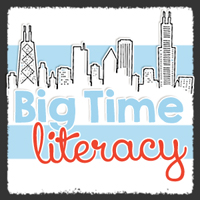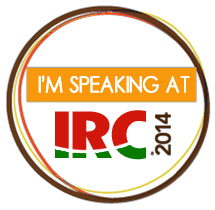Before we get into the conversation, here's how you participate in this virtual book study: Write a post about the book on your own blog. Link your blog post with mine below, and then read and comment on at least three other posts!
Now that that's out of the way, so glad you could join me for the On Your Mark Book Study! This book makes a case for Standards-Based Grading (SBG). The authors argue that this system is better for learning than the traditional grading scales that we may be used to from our days as a student.
What does SBG look like? Her's how I've come to understand it in the past six months: rather than having a traditional 5 grade (A, B, C, D, F) or 100 point (via a percentage grade) system, a SBG scale would have fewer, usually four indicators for describing learning: Exemplary, Proficient, Progressing, and Beginning. To grade an assignment with SBG, a rubric is needed to name indicators at each of the four levels, sometimes in one category, sometimes in a few. Take for example the rubric below. It was created by third grade teachers to assess student learning of CCSS RI 3.2: Determine the main idea of a text; recount the key details and explain how they support the main idea.
When you grade in this way, students might receive multiple grades for one standard - maybe they can name the main idea and use key words and score in the exemplary (4) category, but for details, they demonstrate work at the proficient level (3). The point with these rubrics is that teachers have defined indicators that demonstrate mastery towards the standards and students have a path toward exemplary work.
So with that being said, here are just a few of my thoughts about the text so far. I'll share a few quotes that stood out to me and then briefly discuss why I thought they were so powerful.
Few educators at any level today have any formal training on grading and reporting. Undergraduate courses in education rarely include in-depth discussions of grading. Graduate courses seldom explore the topic. And aside from sessions designed to help teachers learn how to use newly adopted grading software and online grading programs, professional development experiences hardly ever consider grading issues. As a result, school leaders and teachers typically know little about the different grading methods, the advantages and shortcomings of each, or the effects of different grading practices on students. (Brookhard, 2011a; Brookhart & Nitko, 2008; Stiggins, 1993; Stiggins & Chappuis, 2011) p. 10
The reason this stood out to me is that until SBG, I had never even thought that there might be different ways to grade. I never discussed this in Undergrad or Grad School, or with my colleagues. I guess it was just assumed that we all knew how to grade and make it reflect student learning. The more I come to understand about SBG, the more I see the grading I used to do as nonreflective of student learning. Not to say that my grades never reflected student learning - but definitely not to the extent it would today. Even as I teach my grad school classes now, everything is on a rubric. Every part of the papers I require give specific details to reach exemplary work. (Well, the first draft of my rubric isn't as good as the second, and the third version is going to be even better!) It's important to also keep in mind that it's a process, and developing sound rubrics takes time! (Unfortunately you usually don't realize the rubrics aren't working until you're grading the papers!)
Figure 2.1 shows a comparison between the typical letter grading scale and the percentage grading scale. Nearly two-thirds of the percentage grade scale describes levels of failure! is it necessary to distinguish this many levels of failure? Is it helpful to students? Does any teacher consider percentage grades in the 50s to denote modest failure and those in the teens or 20s to represent more significant or extreme failure? Are unsuccessful students concerned about which of the sixth different levels of failure they achieved? (p. 27)
Prior to reading this book, I had never considered another way to think about grades, but yes, it's true! Why do we need all those levels of failure? I think it's because I've been having conversations about SBG for upwards of six months now, and I'm already sold, but having Guskey say it like this, and with the graphic below - I'm just left to wonder....Why? SBG makes so much better sense!
Many educators assume that because the percentage grading scale has one hundred classification levels, it is more precise than a scale with just a few levels (such as Excellent, Satisfactory, and Poor). But in the absence of a truly accurate measuring device, adding more gradations to the measurement scale offers only the illusion of precision.... In other words, with more levels, more students are likely to be misclassified in terms of their performance on a particular assessment. (p. 28-29)
Even when I was using a percentage scale to grade work, I usually didn't have a rubric. I was marking items right or wrong and then calculating a percentage to determine a grade to put in the books. Now that we are using rubrics to give students clear learning targets and for ourselves to give quality feedback, I can see that less is more. You wouldn't want 100 levels of proficiency! It would be too much! Even thinking of a gradient, say, for the levels of reading, perhaps Fountas and Pinnell's levels? There are 26 - I know I would have to look at the Continuum of Literacy Learning to know the differences between a level M reader and a level N. So, for creating rubrics to determine student progress, four levels seems perfect!
Guskey goes on to say,
By limiting the number of grade categories to four or five through an integer grading system, educators can offer more honest, sensible, and reliable evaluations of students' performance. (p. 33)
When combined with the common practice of grade averaging, a single zero can have a devastating effect on a student's percentage grade. The overall grade is unfairly skewed by that one, atypical low score. To recover from a single zero in a percentage grade system, a student must achieve a minimum of nine perfect papers.... Ironically, the true culprit in this matter is not minimum grades or the zero - it's the percentage grading scale. (p. 31)
This just really struck me because of the fact it would take nine - NINE - perfect papers to recover from a zero. I knew zeros did damage, but I guess I had never thought about just how much! There was a student in my grad school class who just did not do one of the two papers that was required. Everything else about his performance was great, and he would have had an A in the class. But, with that zero, he ended up with a C. I can see how detrimental the zero is.
Like Guskey said, the real problem is the system of grading. Of course there are times when a child does not submit assignments, but then the teachers are unable to provide feedback because we have nothing to look at. With a SBG system, it is our job to get the work from the child, so then we can evaluate their learning. I think this is a huge takeaway for me. SBG is always asking the question, What did the child learn?
So that's all for me today! We'll see you back in two weeks for our next post on chapters 3-6! Can't wait to hear about what you thought!






























































